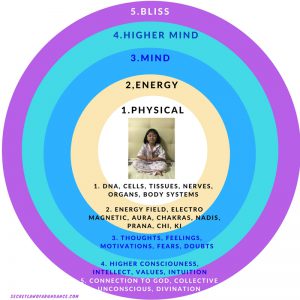The Teachings
Most of the sessions are taught through training and mantra via audio/video of Mr Goenka, the founder and trainer of Vipassana Meditation Centers.
The meditation used is of the observing of the respiratory, body sensory scan and metta (selfless love) techniques are used.
Usually takes place in retreats or camps, the 10 Days Vipassana Meditation Retreat consists of 11-days live in meditation time with more than 111 hours of meditation.
The Focus
The awareness focus was on equanimity and the law of impermanence.
Equanimity is about staying level-headed, not to react with liking or disliking sensations and feelings in the body that creates craving and aversion. Its meditators are asked to stay to the as is, by silently observing the sensation and feeling of the body and not what you want it to be.
Equanimous is being promoted as everything that is are always following the law of impermanence. Every sensation in the body is only temporary and will pass and its meditators are advised not to react to them during meditation and also when faced with challenges or learnings in life.
The Meditation Techniques
We were asked not to practise any other meditation techniques during these 12 days. This is to give fair consideration and evaluation on the method, without being influenced by other meditation techniques.
The meditation techniques focus on the what is, will pass. Sitting through the act of sweeping through the sensation of the body while experiencing and itch, pain or numbness, in different parts of the body. The meditators are taught to focus on the respiration of the breath and sweeping the sensation of the body.
Anapana Meditation focusing on the respiratory of the breath, followed by the sensation of the respiratory of the breath within the nostril diaphragm area and the area above the upper lips followed by
Vipassana Meditation focuses on sweeping and acknowledging the actual physical sensation of the body during meditation. Meditators are asked to be equanimous, not to react with any body movement to any sensation or feelings of the body during meditation. This is emphasizing that what is, will eventually pass. It represents that what is, good or bad feelings will pass. So, meditators are asked to sit quietly without reacting to any pain, numbness, itch and any other sensation. We are told that we do this in life, we will prevent ourselves from misery and attachment to any good or bad feelings or events like cravings and aversions.
Metta Meditation simply asking for harmony, peace and happiness for the meditator and humankind.
The Purpose
The ultimate purpose of the teachings were to reach harmony, peace and happiness in humankind.
Check out personal experience of The 10-days Vipassana Meditation Retreat.
The Precepts
Precepts are undertakings or promise one must abide to. Precepts are usually observed by monks, dhamma or strict meditators. The meditators are asked to abide to the first 5 precepts. For percept 6, only one-two fruits allowed after noon. Repeat meditators abide to all 6 precepts with no food after noon.
The Eight Precepts:
- I undertake the precept to refrain from destroying living creatures.
- I undertake the precept to refrain from taking that which is not given.
- I undertake the precept to refrain from sexual activity.
- I undertake the precept to refrain from incorrect speech.
- I undertake the precept to refrain from intoxicating drinks and drugs which lead to carelessness.
- I undertake the precept to refrain from eating at the forbidden time (i.e., after noon).
- I undertake the precept to refrain from dancing, singing, music, going to see entertainments, wearing garlands, using perfumes, and beautifying the body with cosmetics.
- I undertake the precept to refrain from lying on a high or luxurious sleeping place.
